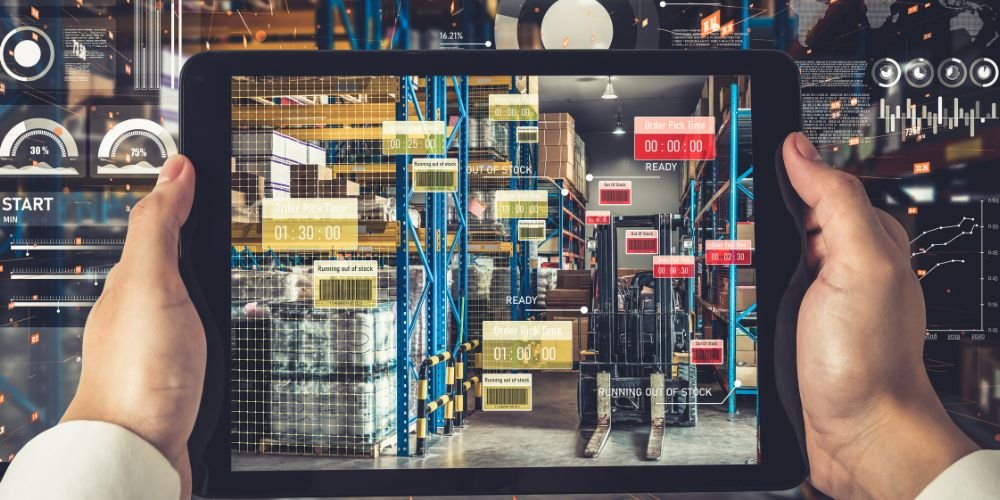In the rapidly evolving technology landscape, Augmented Reality (AR) has emerged as a transformative force, offering interactive, immersive experiences that blend the physical and digital realms. This article explores the expansive realm of Augmented Reality, unveiling its significance, tracking the evolution of key technologies, examining its impact across sectors, and envisioning its transformative potential.
The Significance of Augmented Reality
Augmented Reality is not just a technological novelty but a paradigm shift in how individuals perceive and interact with the world around them. AR enhances the real world by overlaying digital information, creating a richer, more engaging user experience.
Enhancing User Interaction and Engagement
Augmented Reality’s core is its ability to enhance user interaction and engagement. Whether through mobile devices, smart glasses, or headsets, AR helps users see and interact with digital content seamlessly integrated into their physical surroundings, fostering a more immersive, interactive experience.
Contextual Information and Real-time Insights
AR provides contextual information and real-time insights, enriching users’ understanding of their environment. From tourist information overlaid on historical landmarks to real-time translations of foreign languages, AR empowers users with relevant and immediate information.
Applications Across Industries
The significance of AR extends across various industries, from gaming and entertainment to healthcare, education, and manufacturing. AR applications offer new possibilities for training simulations, interactive learning experiences, and enhanced productivity in professional settings.
Evolution of Key Technologies in Augmented Reality
The journey of Augmented Reality is intricately woven with technological advancements that continually push the boundaries of immersive experiences.
Marker-based and Markerless AR
The evolution of Augmented Reality includes both marker-based and markerless approaches. Marker-based AR relies on visual markers, such as QR codes, to trigger digital overlays. In contrast, markerless AR uses computer vision and object recognition to integrate digital content into the real world seamlessly.
Spatial Computing and Depth Sensing
Spatial computing and depth sensing technologies enhance the accuracy and realism of AR experiences. Devices equipped with depth-sensing cameras and sensors can understand the physical environment’s depth and spatial characteristics, allowing for more precise placement of digital elements.
Integration with Artificial Intelligence (AI)
The integration of Augmented Reality with Artificial Intelligence (AI) is expanding its capabilities. AI algorithms enable AR systems to recognize objects, understand user gestures, and adapt to user behaviors, creating more personalized and intelligent AR experiences.
Impact on Various Sectors
Augmented Reality extends its influence beyond entertainment, reshaping various sectors and redefining industries’ operations.
Healthcare and Medical Visualization
The healthcare sector is transforming medical visualization. Surgeons use AR to overlay patient data during surgeries, enhancing precision and reducing risks. AR also facilitates medical training through interactive simulations and 3D visualizations.
Education and Interactive Learning
In education, it enhances interactive learning experiences. AR applications bring textbooks to life, allowing students to explore 3D models, historical artifacts, and scientific simulations, fostering a more engaging and immersive learning environment.
Retail and Virtual Try-Ons
Augmented Reality is revolutionizing the retail industry with virtual try-on experiences. Customers can use AR apps to visualize products in their real-world surroundings before making purchasing decisions, enhancing the online shopping experience.
Transformative Potential and Future Outlook
The trajectory of Augmented Reality points toward a future filled with continued innovation, integration, and unprecedented possibilities.
Extended Reality (XR) and Multimodal Experiences
Integrating Augmented Reality into Extended Reality (XR) environments is poised to create more immersive and multimodal experiences. XR combines AR, Virtual Reality (VR), and Mixed Reality (MR) to provide users with a spectrum of digital experiences that span from the real to the entirely virtual.
5G Connectivity and Low Latency
The widespread adoption of 5G connectivity is set to revolutionize the capabilities of Augmented Reality. With lower latency and higher data speeds, AR applications can deliver more seamless, responsive experiences, opening new possibilities for real-time interactions and collaboration.
Smart Glasses and Wearable AR Devices
The future of Augmented Reality includes the widespread adoption of smart glasses and wearable AR devices. These devices offer a hands-free, immersive AR experience, enabling users to seamlessly access information, navigate environments, and interact with digital content.
Conclusion
Augmented Reality has evolved from a futuristic concept to a transformative force with far-reaching implications across various sectors. As we navigate the digital frontier, the transformative potential of Augmented Reality is both exciting and profound. With the continued integration of cutting-edge technologies, a commitment to enhancing user experiences, and a focus on expanding its applications, it will remain an enterprising force in reshaping how we perceive and interact with the world, unlocking new possibilities, and redefining the future of immersive digital experiences.




